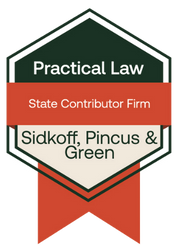What Are Common Elements of a Non-Compete Agreement?

For many Philadelphia businesses, non-compete agreements are a crucial tool for safeguarding competitive advantages and protecting valuable business interests. These agreements limit the ability of former employees, business partners, or contractors to engage in competitive activities after their relationship with the company ends. When properly drafted, non-compete agreements can help a business preserve its market share, maintain strong customer relationships, and protect proprietary information.
Purpose and Scope of the Agreement
The first element businesses should consider is the purpose and scope of the agreement. Courts are more likely to enforce non-compete agreements that are narrowly tailored to protect legitimate business interests. This often includes safeguarding trade secrets, confidential information, customer goodwill, or specialized training that the business has invested significant time and resources to provide.
The scope of the agreement defines the types of activities that are restricted. For example, an employer may prohibit a former employee from working for a direct competitor, soliciting clients, or establishing a competing business. To be effective, the scope should be clearly defined and focused on activities that could cause actual harm to the business. An agreement that is too broad risks being challenged as unreasonable.
Time and Geographic Limitations
Another critical component of a non-compete agreement is its duration and geographic reach. Courts generally expect these restrictions to be reasonable and tailored to the nature of the business. From an employer’s perspective, it is important to limit the agreement to a timeframe that aligns with the value of the confidential information or relationships being protected. Many enforceable agreements range from six months to two years, although this can vary depending on industry and business needs.
Geographic restrictions should also be carefully considered. A non-compete agreement must specify the area where the restrictions apply, whether that is a city, county, state, or a certain radius around the business. Employers should tailor these geographic limits to reflect the company’s actual market or service area.
For example, a business with a local customer base may only need protections within its immediate region, while a company with a broader reach may require wider restrictions. Overly expansive geographic limitations can create enforceability challenges, while well-defined limits strengthen the business’s ability to protect itself.
Frequently Asked Questions
What business interests can a non-compete agreement protect?
Non-compete agreements can protect customer relationships, confidential information, trade secrets, and investments in employee training. These agreements are designed to prevent unfair competition by limiting how former employees or partners can use the knowledge and relationships gained during their time with the company.
How long should a non-compete agreement last?
The ideal duration varies by industry and business needs, but many agreements last between six months and two years. The key is to align the timeframe with the length of time it would take for confidential information or customer goodwill to lose its competitive value.
Can non-compete agreements apply to independent contractors or business partners in Philadelphia?
Yes, non-compete agreements can extend beyond traditional employees. Businesses often use them with independent contractors, consultants, or partners to ensure that proprietary knowledge and client relationships are not used against the company after the relationship ends.
Our Philadelphia Business Attorneys at Sidkoff, Pincus & Green P.C. Protect Your Business
Non-compete agreements are an important part of protecting a company’s proprietary information, customer relationships, and long-term stability. Speak with our Philadelphia business attorneys at Sidkoff, Pincus & Green P.C. about how we can help you. Contact us online or call us at 215-574-0600. Located in Philadelphia, we serve clients in Pennsylvania and New Jersey.




























